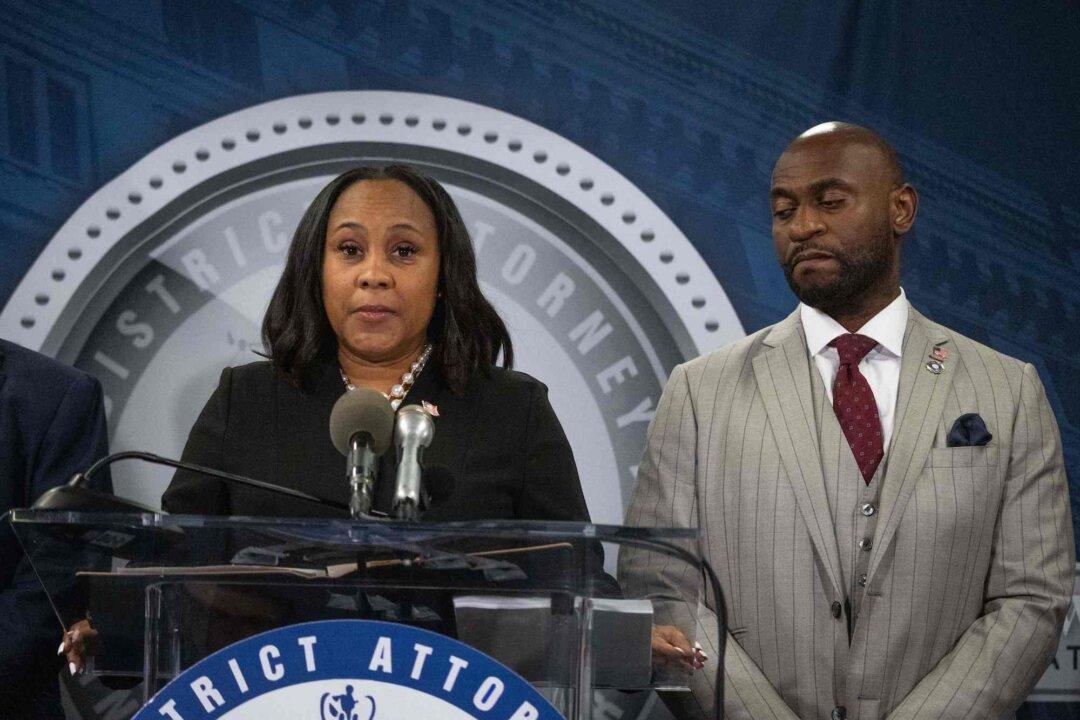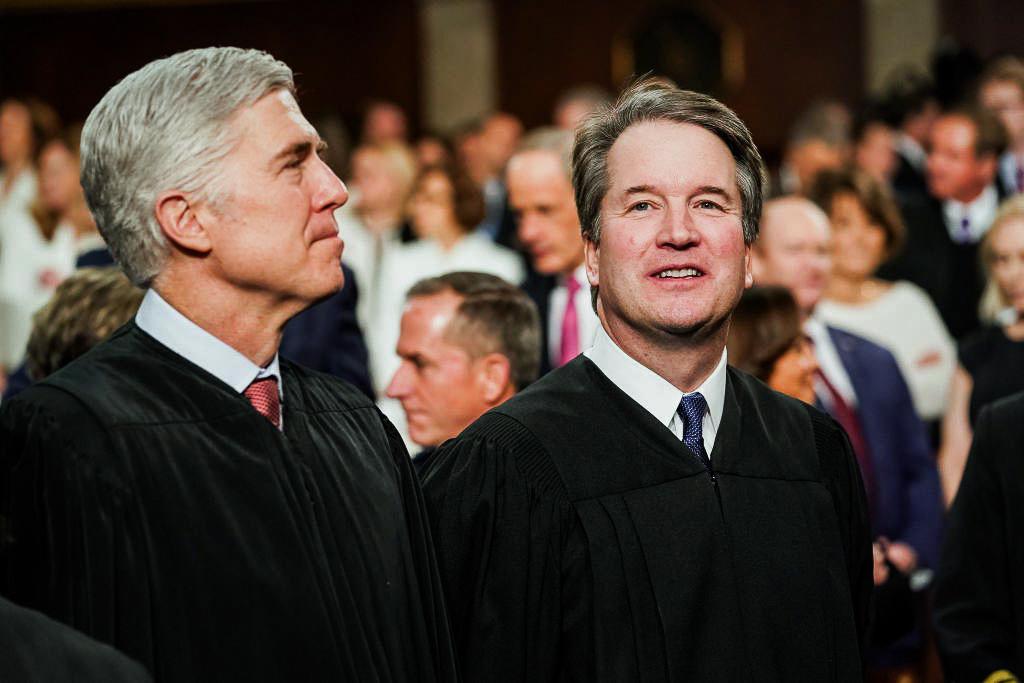A group of Georgia prosecutors has filed a lawsuit challenging a law that established an oversight commission that they argue unfairly curtails their power and undermines the will of voters but that Georgia Gov. Brian Kemp says merely disciplines “rogue prosecutors” for refusing to uphold the law and prosecute certain crimes.
Some Democrats have also expressed fear that the commission could be used to derail Fulton County District Attorney Fani Willis’s prosecution of former President Donald Trump.
Republicans who led the effort to pass the law and establish the panel have denied that it targets Ms. Willis or any specific individual.
Holding ‘Rogue’ Prosecutors Accountable?
Mr. Kemp initially signed legislation related to the new disciplinary commission in May 2023, but the panel was unable to start operating after the state Supreme Court in November 2023 declined to approve rules for its governance. At the time, the justices said in their ruling that they had “grave doubts” about whether adopting the standards and rules was within their constitutional powers.Mr. Kemp signed the measure into law on March 13, saying at a signing ceremony that the community experiences harm and property is put at risk when public prosecutors refuse to prosecute certain types of crimes, putting politics ahead of public safety.
“This legislation will help us ensure rogue or incompetent prosecutors are held accountable if they refuse to uphold the law,” Mr. Kemp said at the time.
“As we know all too well, crime has been on the rise across the country, and is especially prevalent in cities where prosecutors are giving criminals a free pass or failing to put them behind bars due to lack of professional conduct.”
However, the plaintiffs in the lawsuit argue that it threatens the ability of local prosecutors to use discretion regarding which legal tools—beyond incarceration—they want to use to promote public safety in their communities.
“To be effective, DAs must find ways to leverage their limited resources to focus on the most serious of crimes and use programs like pretrial diversion to resolve other cases more efficiently,” the group of DAs said in a statement.
They also argue that it creates a chilling effect on free speech by opening them up to disciplinary action for openly communicating that they would refuse to prosecute certain types of crimes.
In their lawsuit, the four Georgia DAs seek to bar the new commission from investigating or taking any disciplinary action against district attorneys or solicitors general for prosecutorial decisions, including for policies of not prosecuting certain individuals or types of crimes or for statements that they make related to nonprosecution decisions.
They have asked the court to declare the law that establishes the commission as void or at least to hamstring the panel to the extent that it cannot handle any complaints against local prosecutors or take disciplinary action against them.
“Our commitment to fight this unconstitutional law is as strong as ever,” Georgia DA Sherry Boston said in a statement. “Gov. Kemp and the state lawmakers who supported this measure willfully ignored the concerns raised by the Georgia Supreme Court and did the absolute minimum to force the PAQC into existence.
“As I promised in November, we will continue to push back against this shameless attempt by state Republicans to control how local communities address their public safety needs and work to restore that power to Georgia voters.”

Mr. Kemp defended the disciplinary commission in an April 16 statement.
“We have witnessed time and again what happens when criminals are allowed to roam free by those whose duty it is to bring forward justice,” he said. “Holding rogue prosecutors accountable for refusing to uphold the law is not just good policy, it’s critical to ensuring our communities remain safe and secure.”
Republicans across the country have pushed measures to rein in progressive prosecutors that they see as being soft on criminals by declining to prosecute certain types of crimes. Mr. Kemp and others who back the Georgia measure have argued that the establishment of the disciplinary panel is in line with those efforts.
The panel has the authority to investigate and remove local prosecutors, and a DA so removed would not be allowed to serve again for 10 years.
Focus on Willis
Democrats opposed to the passage of the law that established the commission claimed that it could be used to target prosecutors involved in the case against President Trump.“The commission will be able to unilaterally proceed and have the ability to interfere and undermine an ongoing investigation against Donald J. Trump,” state House Minority Whip Sam Park, a Democrat, told the Associated Press when the House version of the measure passed.
“You are taking action to protect former President Trump from an ongoing criminal prosecution.”
Georgia House Speaker Jon Burns, a Republican, told the AP that the measure isn’t directly focused on Ms. Willis or any one individual.
“For us in the House, our focus is not on any one person, not on any one situation,” Mr. Burns told reporters after Mr. Kemp signed the bill into law. “It’s about asking the folks that are elected, just like me, to do their jobs and protect the citizens of this state.”
Ms. Willis has been accused of having an “improper” relationship with Nathan Wade, a special prosecutor in the election interference case against the former president and more than a dozen co-defendants. She also faced conflict-of-interest allegations that she benefited from the relationship financially, and she has been accused of witness tampering and lying on the stand.
Judge McAffe ordered that either Ms. Willis or Mr. Wade needed to stop working on the case, and Mr. Wade later resigned.







